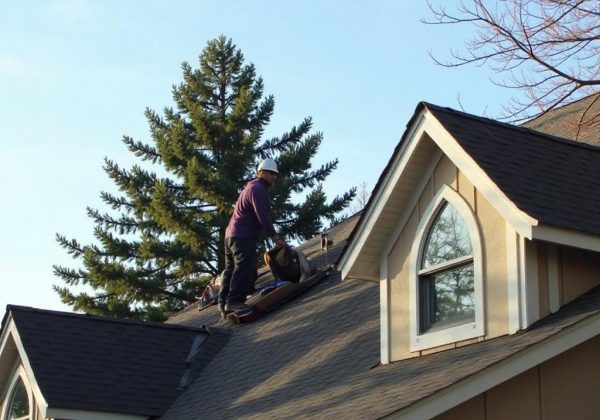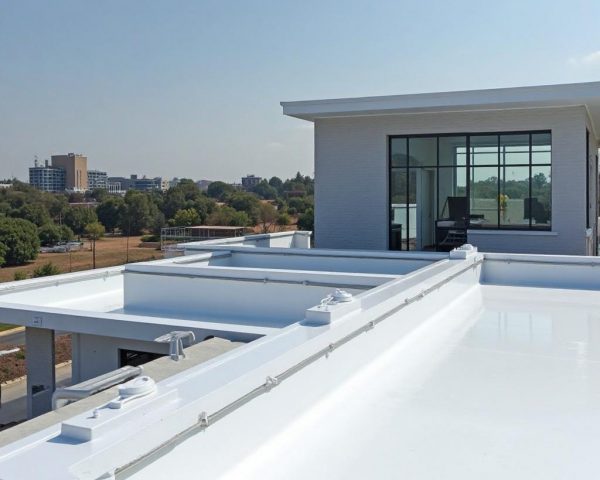Commercial Roofing: Costs, Contractor Fees, and Choosing the Best Roofer
Introduction
In the ever-shifting landscape of commercial real estate, ensuring your property remains in top shape is vital. One of the most significant aspects to consider is your roof. A sturdy roof not only protects your investment but also enhances curb appeal and can even improve energy efficiency. If you're searching for "commercial roofing contractors near me," you’re likely looking for guidance on costs, contractor fees, and how to select the right roofer. This guide aims to provide a thorough overview of these topics while focusing on the local context in Crandall, TX.
Understanding Commercial Roofing
What is Commercial Roofing?
Commercial roofing refers to the installation SCR, Inc. General Contractors and maintenance of roofs on commercial buildings, which can include offices, warehouses, retail spaces, and more. Unlike residential roofing, commercial roofs often require different materials and techniques due to their size and structure. Common types of commercial roofing include:
- Flat Roofs: These are prevalent in many commercial buildings due to their simplicity.
- Low-Slope Roofs: Slightly sloped but still flat enough that they need special materials.
- Metal Roofs: Known for their durability and longevity.
Why is Commercial Roofing Important?
A well-maintained roof plays a crucial role in protecting your business assets. It helps prevent water damage, improves energy efficiency, and can even contribute to employee productivity by creating a comfortable working environment.
Types of Commercial Roofing Systems
1. TPO (Thermoplastic Olefin)
TPO roofs are single-ply membranes that are lightweight yet durable. They’re known for being energy-efficient because they reflect sunlight.
Benefits of TPO
- Cost-effective
- Energy-efficient
- Resistant to UV rays
2. EPDM (Ethylene Propylene Diene Monomer)
EPDM is another popular single-ply roofing membrane that's particularly known for its long lifespan.
Benefits of EPDM
- Easy installation
- Excellent weather resistance
- Low maintenance requirements
3. Modified Bitumen
This type combines asphalt with modifiers for added durability.
Benefits of Modified Bitumen
- Highly resistant to harsh weather conditions
- Excellent flexibility
4. Built-Up Roofing (BUR)
BUR systems consist of multiple layers of asphalt and felt.
Benefits of BUR
- Strong resistance against punctures
- Long-lasting durability
Factors Influencing Commercial Roofing Costs
Material Selection
The choice between TPO, EPDM, metal roofing or others will heavily impact your overall costs.

Installation Complexity
If your building has complex architectural features or requires extensive prep work, expect higher labor costs.
Local Labor Rates
Labor rates can vary significantly based on location; hiring "commercial roofing contractors near me" can help you gauge local pricing better.
Roof Size and Pitch
Larger roofs will naturally incur more material costs. Steeper pitches may also increase labor time.
Average Costs for Commercial Roofing
| Type | Average Cost per Square Foot | |---------------|-------------------------------| | TPO | $5 - $7 | | EPDM | $4 - $6 | | Modified Bitumen | $6 - $8 | | Built-Up | $5 - $9 |
Note: Prices can vary based on specific conditions.
Understanding Contractor Fees
What’s Included in Contractor Fees?
When hiring a contractor for commercial roofing projects, various fees may apply:
How Are Contractor Fees Structured?
Most contractors charge either a flat fee or an hourly rate for their services:
Choosing the Best Roofer
Researching Local Contractors
Start by searching online for “commercial roofing contractors near me.” Look for reviews and ratings from past clients to gauge reliability.
Questions to Ask Potential Contractors:
- How long have you been in business?
- Can you provide references?
- What warranties do you offer on materials and labor?
Getting Multiple Quotes
It’s wise to get at least three quotes from different contractors before making a decision. This helps ensure you're getting a fair deal while allowing you to compare services offered.
The Importance of Licenses and Insurance
Always verify that your chosen contractor holds the necessary licenses required by Texas law. Additionally, ensure they have liability insurance and workers' compensation coverage—this protects everyone involved should something go wrong during installation.
Maintenance Tips for Your Commercial Roof
Proper maintenance can extend the life of your roof significantly:
FAQs About Commercial Roofing
What’s the average lifespan of a commercial roof?
Most commercial roofs last between 15–30 years depending on material choice and maintenance practices.
How often should I inspect my commercial roof?
It's recommended to inspect at least twice a year—once in spring and once in fall—to catch any potential issues early.
Do I need permits for my commercial roofing project?
Yes, most cities require permits for significant roofing work; check local regulations before starting any project.

How do I know if I need a new roof or just repairs?
Signs like frequent leaks or visible wear may indicate it's time for replacement rather than repair; consulting with an expert can provide clarity.
Can I stay open during a roof replacement?
In most cases yes! Many contractors work around business hours or execute jobs in sections so that operations continue smoothly during construction.
Is it worth investing in energy-efficient roofing solutions?
Absolutely! While upfront costs may be higher, energy savings over time usually outweigh these initial investments through reduced utility bills.
Conclusion
A Comprehensive Guide to Commercial Roofing: Costs, Contractor Fees, and Choosing the Best Roofer aims at arming you with knowledge about maintaining one of your property's most essential features—the roof! By understanding types of roofs available as well as what influences costs along with contractor fees—you'll be better prepared when searching "commercial roofing contractors near me." Always remember that maintaining good communication with your chosen contractor throughout will make sure everything goes smoothly!
Whether you're planning minor repairs or considering a complete overhaul—be proactive about protecting this valuable asset!